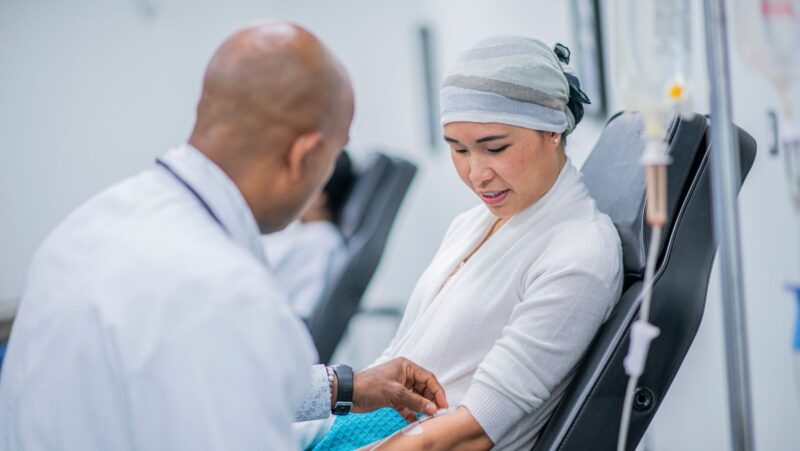
The health science career cluster offers a diverse range of opportunities for those passionate about improving lives through healthcare. With the demand for skilled professionals continuously rising, this field encompasses various roles from patient care to research and administration. Individuals in this cluster play a crucial role in promoting wellness and addressing health challenges faced by communities.
Exploring the health science career cluster reveals pathways in areas like nursing, medical technology, and public health. Each role contributes uniquely to the healthcare system, ensuring that patients receive the best possible care. As the industry evolves, new specializations emerge, making it an exciting time to consider a career in health science.
Health Science Career Cluster Description
The health science career cluster encompasses a wide array of professions focused on health improvement and patient care. This cluster includes roles in direct patient care, research, health administration, and public health, each contributing significantly to the overall healthcare landscape.
Key Areas of Focus
- Patient Care: Positions such as nurses and physician assistants provide essential medical services and support to patients.
- Medical Technology: Professionals like laboratory technicians and radiologic technologists utilize advanced technology to aid in diagnosis and treatment.
- Public Health: Specialists in this area work on community health initiatives, disease prevention programs, and health education.
Emerging Specializations
Emerging fields within the health science career cluster include telemedicine, genetic counseling, and health informatics. These areas respond to evolving healthcare needs, driven by technological advancements and ongoing health challenges, further expanding opportunities in the sector.
Workforce Demand
The increasing demand for healthcare services fuels growth across health science professions. Data shows that jobs in this sector are projected to grow by 16% from 2020 to 2030, significantly faster than the average for all occupations. This growth underscores the importance of skilled professionals dedicated to improving health outcomes.
The health science career cluster presents dynamic career pathways for those interested in making a difference in healthcare. With diverse roles offering both challenges and rewards, it attracts individuals driven to advance health and wellness in communities.
Key Components of Health Science Career Cluster
The health science career cluster comprises various elements critical to advancing healthcare and enhancing community well-being. Key components include areas of specialization and the skills required to excel in these fields.
Areas of Specialization
- Nursing: This area involves direct patient care, focusing on promoting health, preventing illness, and providing treatment.
- Medical Technology: This specialization pertains to laboratory diagnostics, including analyzing blood samples and conducting advanced imaging tests.
- Public Health: This sector prioritizes community health initiatives, emphasizing disease prevention, health education, and emergency preparedness.
- Telemedicine: This emerging field utilizes technology to provide remote patient consultations and health monitoring.
- Genetic Counseling: This specialization focuses on genetic testing, risk assessment, and offering support to families with hereditary conditions.
- Health Informatics: This area combines healthcare and information technology to optimize patient data management and enhance healthcare delivery.
- Communication Skills: Professionals need clear and direct communication abilities for effective patient interactions and teamwork.
- Critical Thinking: Individuals must analyze situations, assess problems, and develop appropriate solutions quickly.
- Technical Skills: Understanding and utilizing medical equipment and technology is essential for various health science roles.
- Compassion and Empathy: Connecting with patients on a personal level ensures better care and support in times of need.
- Attention to Detail: Precision in tasks, such as administering medications or interpreting test results, is vital for patient safety.
- Teamwork: Collaborative skills enhance interdisciplinary cooperation, improving patient care and health outcomes.
Career Opportunities in Health Science
The health science career cluster offers a variety of roles suitable for individuals passionate about healthcare. This section outlines emerging careers and established roles within this dynamic field.
Emerging Careers
Emerging careers in health science reflect the industry’s evolution and technological advancements. These roles include:
- Telehealth Coordinator: Manages remote patient care services, ensuring effective communication between patients and healthcare providers.
- Genetic Counselor: Advises individuals on genetic conditions and testing options, promoting informed health decisions.
- Health Informatics Specialist: Optimizes the management of patient data through technology, enhancing efficiency and accuracy in healthcare delivery.
- Clinical Research Associate: Oversees clinical trials, ensuring adherence to protocols and ethical standards while collecting crucial data.
Each of these emerging roles requires specialized skills and offers unique contributions to healthcare.
Established Roles
Established roles in health science form the backbone of the healthcare system. Notable positions include:
- Registered Nurse (RN): Provides direct patient care, performs assessments, and collaborates with healthcare teams to develop treatment plans.
- Medical Laboratory Technologist: Conducts laboratory tests to assist in diagnosing diseases, ensuring accuracy and reliability in results.
- Public Health Administrator: Designs and implements community health programs, addressing public health needs and improving wellness initiatives.
- Pharmacist: Manages medication therapy, offers consultation on drug interactions, and educates patients about their medications.
These established roles continue to be in high demand, offering stability and the opportunity to make a significant impact on patient health and community well-being.
Education and Training Pathways
Education and training pathways in the health science career cluster vary significantly depending on the chosen specialization. These programs equip individuals with the necessary skills and knowledge to excel in their roles within the healthcare system.
Degree Programs
Degree programs in health science typically range from associate’s to doctoral levels.
- Associate Degree: Prepares candidates for entry-level positions, such as nursing assistants or medical laboratory technicians.
- Bachelor’s Degree: Equips students for roles like registered nurses or public health administrators, combining foundational knowledge with practical applications.
- Master’s Degree: Focuses on advanced skills for professionals aiming for leadership positions, such as health informatics specialists or nurse practitioners.
- Doctoral Degree: Designed for those pursuing research or high-level administrative roles within healthcare, such as clinical psychologists or health services executives.
These programs emphasize both theoretical understanding and hands-on training, ensuring graduates are well-prepared for the demands of their respective fields.
Certification and Licensure
Certification and licensure requirements differ based on specific professions within the health science career cluster.
- Registered Nurses require passing the NCLEX-RN exam and obtaining state licensure.
- Medical Laboratory Technologists must often gain certification through organizations like the American Society for Clinical Pathology (ASCP).
- Public Health Professionals typically pursue certification in a specialized area, such as Certified in Public Health (CPH).
- Genetic Counselors need to obtain certification from the American Board of Genetic Counseling after completing a master’s program.
These credentials validate the expertise of professionals and often enhance employment opportunities in a competitive job market.
Importance of Health Science Career Cluster
The health science career cluster plays a crucial role in enhancing public health and well-being. This sector directly impacts community health outcomes, making it essential for those focused on promoting wellness.
Healthcare professionals contribute significantly to patient care, research advancements, and policy development. They address diverse health challenges, ensuring the provision of safe and effective healthcare services. The growing demand for skilled workers translates to numerous job opportunities within this cluster, making it a vital career pathway for individuals seeking stability and impact.
Additionally, the emergence of new specializations reflects the evolving nature of healthcare. Innovations such as telemedicine and health informatics demonstrate the need for professionals equipped with the latest knowledge and skills. These advancements not only improve patient access to care but also enhance the efficiency of healthcare delivery systems.
The emphasis on education and training ensures professionals are well-prepared for their roles. Various degree programs and specialized certifications validate their expertise, making them competitive candidates in a demanding job market.
The health science career cluster remains significant due to its pivotal role in addressing health issues, promoting innovations, and providing stable career opportunities that fulfill essential community needs.













